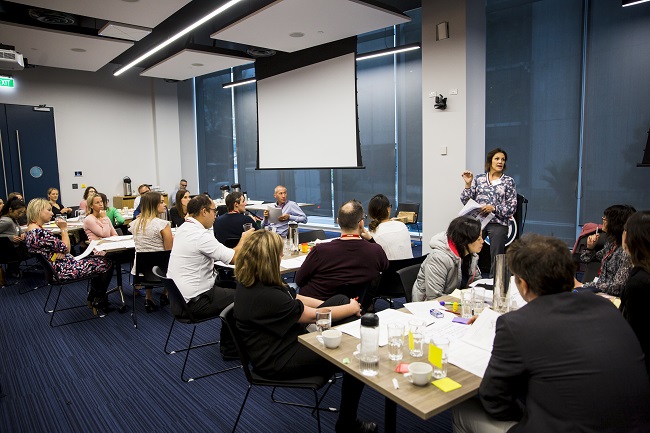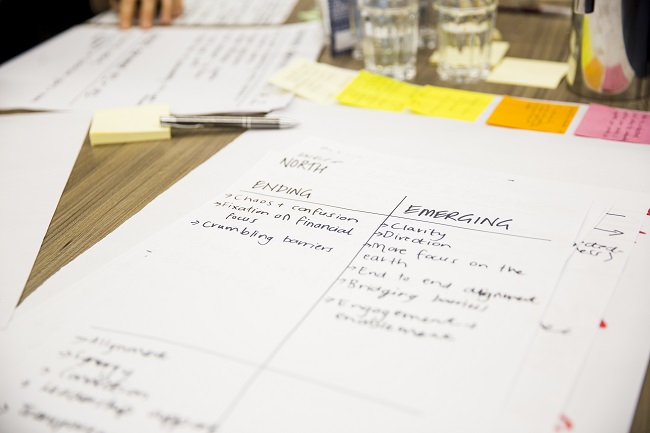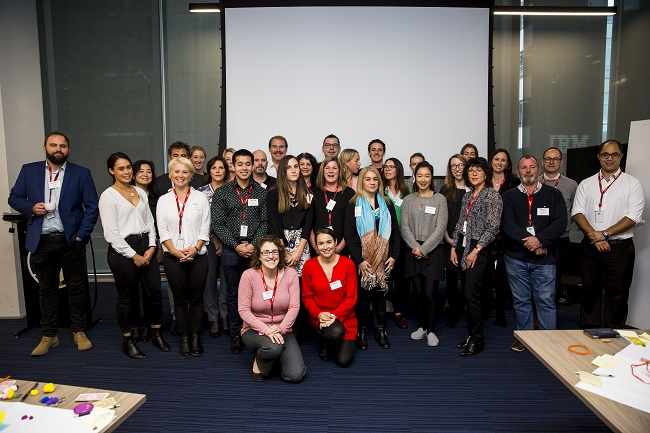Sashes are the new capes – part 1
Jay Crangle, our new Events and Training Manager, reflects on her first workshop at our Sustainability Leadership Programme, delivered by Catapult. In today’s blog, she looks at sustainability superheroes, competitive busyness and how to think about system change.
Jay Crangle, our new Events and Training Manager, reflects on her first workshop at our Sustainability Leadership Programme, delivered by Catapult. In today’s blog, she looks at sustainability superheroes, competitive busyness and how to think about system change.
Introducing Ms. Sustainable Universe
It was our boss’s birthday the other week. One of our colleagues bought her a birthday sash which she wore with pride at our team meeting (and, rumour has it, at one of our member inductions later that day). Cries were made to the tune of ‘take back the sash’ – that the time has come to reclaim the sash from the catwalks of Ms Universe and embrace them as symbols of empowerment.
Just as you don’t need to be Ms Auckland to wear a sash, you also don’t need to wear your undies outside your pants to be a sustainability superhero. One of the first things we covered at the Sustainability Leadership Programme was that not all Sustainability Superheroes™ wear capes – and nor do we need to.
The best leaders are those who lead authentically. Sustainability is the collective effort of ordinary people doing their best to “love the planet so that others in the future get to love it too” as one of my fellow SLP attendees so aptly put it. It’s humbling to remember we are one of many, and that leadership comes in some many different guises.

Busyness is not a competitive sport
We’ve all heard it. The two people in the work kitchen having a ‘busy-off.’ “How’s your week going?” “Oh it’s just so busy. I have so much on my plate at the moment, and so much to do.” “Me too! I am swamped. I have so much on and people keep asking me to do more!” This is what we were told is called ‘below the line thinking’ when we focus on making excuses, get stuck in frustration and feel powerless. Staying in the above the line space – being positive, honest, taking ownership – is essential to good leadership.
Moreover, when we hold on to this concept of being a human doing rather than human being, we often don’t make time to be a leader. One of the tips from SLP was to schedule in time to lead. A meeting with just ourselves (putting the ‘me’ in ‘meeting’ as I like to call it) to review our week and plan our strategy for the next one.
It might feel like the last thing we need to do when our to do list is longer than a Game of Throne’s fans criticisms of Season 8. But it’s the only way in which we can take space to look at the big picture and come back to our purpose as a way of achieving our overarching goals.

The system is dead (long live the system)
Spoiler alert: the way we, as a global society, currently live our lives, is unsustainable. We consume more than we contribute (funnily enough also my motto at hotel buffet breakfasts). We’re running out of dead dinosaurs. We’re putting out more carbon-loaded hot air than the Kardashians. We need to move beyond sustainability to regeneration if we are to have any hope of clawing our planet’s health back from the brink.
And the system in which we operate to try and change is chaotic. Full of ambiguity, uncertainty, existential questions like ‘will we all be here by 2050 anyway?’ We saw this when we mapped our own stakeholders, from core to indirect, and were confronted by just how many players there are. Take this a step further and we see that we operate in so much chaos and have so much change to achieve, the system we operate in may well be broken.
As a logical, systematic thinker (I’m fully embracing the C of my DISC profile behavior analysis) this presents a challenge for me. The rule books been torn up so how am I, a closet lover of order (and buffet breakfast), best able to navigate this chaos so I can make a meaningful contribution?
Some helpful tips I took away were to develop meaningful relationships with others to see this as a collective issue we can tackle. To learn to identify what are the technical problems (linear, with clear solutions) and adaptive which require experimentation, change of hearts and minds, and agile ways of working.

The SBC Sustainability Leadership Programme has been developed specifically for senior business leaders and managers, with accountability for sustainability outcomes and leadership.
Contact: Jay Crangle, Events and Training Manager
Phone:
Email:
